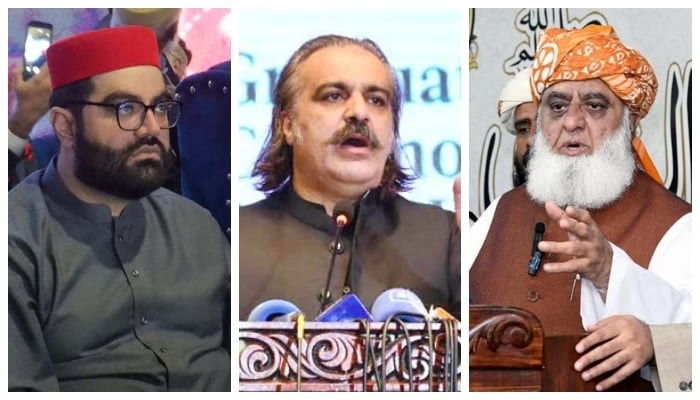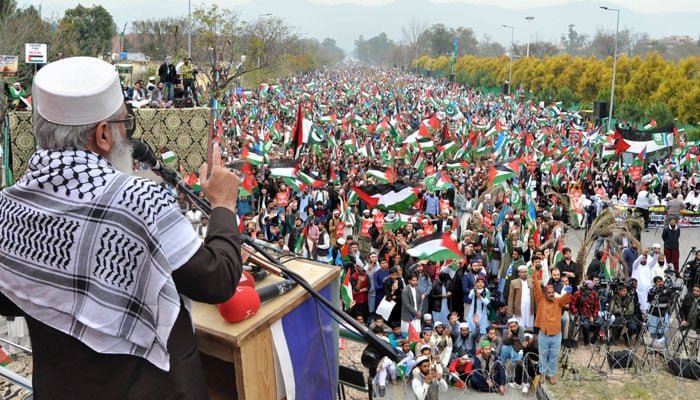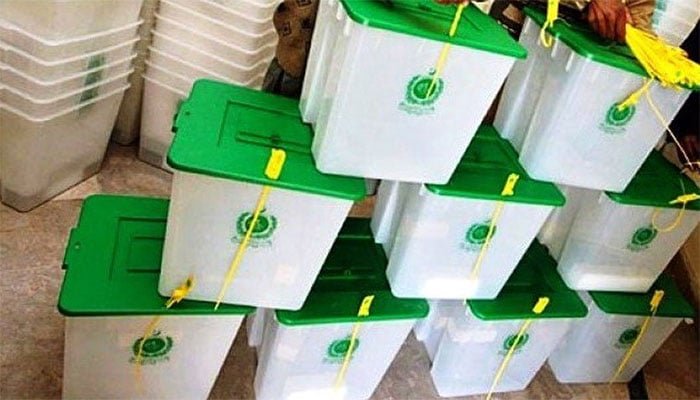The opposition parties in Khyber Pakhtunkhwa (KP) have collectively rejected the Pakistan Tehreek-e-Insaf (PTI)-led provincial government’s invitation to participate in an All-Party Conference (APC), scheduled to be held tomorrow (Thursday) at the Chief Minister’s House in Peshawar. The meeting, called by KP Chief Minister Ali Amin Gandapur, is aimed at discussing the recent surge in terrorism, especially in the newly merged tribal districts.
Despite the seriousness of the topic, major opposition parties including the Awami National Party (ANP), Pakistan Peoples Party (PPP), Jamiat Ulema-e-Islam-Fazl (JUI-F), and Pakistan Muslim League-Nawaz (PML-N) have refused to participate in the conference, with some leaders dismissing it as political posturing rather than a sincere attempt at solving KP’s law and order crisis.
Opposition Criticism: “Mere Eyewash”
The rejection comes just days after the provincial government and opposition parties successfully collaborated on the Senate seat distribution — a rare display of political unity in KP. However, this newfound cooperation did not extend to the APC, which the opposition parties allege is merely symbolic.
ANP senior leader Mian Iftikhar Hussain criticized the government’s intent behind the APC, stating, This is not a PTI initiative but a government move where all key decisions have already been made. The meeting is irrelevant now. He added that ANP would boycott the conference.
Echoing similar sentiments, PPP KP President Mohammad Ali Shah Bacha accused the PTI-led provincial government of being disingenuous. There have been several meetings on law and order before — none of them produced results. This APC is nothing more than an eyewash, he said. Bacha emphasized that the government should first abandon its political protests and focus on resolving public issues.
JUI-F also confirmed through a spokesperson that it will not attend the APC, reinforcing its stance that the government lacks sincerity in its efforts. Similarly, PML-N Additional Secretary Information Arbab Khizer Hayat also announced his party’s decision to boycott the meeting.
Parties Attending the APC
While major opposition forces have declined participation, a few parties have decided to attend. The Jamaat-e-Islami (JI) and the Qaumi Watan Party (QWP) confirmed their representation at the APC.
JI KP Central President Abdul Wasay stated that Professor Muhammad Ibrahim Khan would attend on behalf of the party. Wasay reiterated JI’s commitment to supporting any sincere step toward establishing peace in the province.
QWP’s Central Information Secretary Tariq Khan will represent the Aftab Sherpao-led party. In a statement, QWP said that despite political differences, it views the worsening law and order situation as a matter requiring collective attention.
Government’s Appeal for Unity
In response to the boycott, Chief Minister Gandapur told reporters in Peshawar that those refusing to attend are effectively showing indifference to the people’s concerns. “Those who won’t attend the APC will reveal they have no concern for the people,” he said.
According to the CM Secretariat, formal invitations were sent to all political parties to consult on how best to deal with the rising wave of terrorist incidents, especially in the merged districts formerly known as FATA. The letter stressed the severity of the threat and emphasized that the government alone cannot curb terrorism without the cooperation of all political stakeholders.
Gandapur underscored that the APC aims to formulate a unified and strategic response to combat the threat. We are not here to point fingers. A collective solution is the only way forward,he added.
Key Highlights of Government’s Efforts
During the APC, a detailed briefing will be provided outlining the provincial government’s initiatives since taking office. Gandapur highlighted that billions of rupees have been spent to enhance the capacity of the KP police force. He also pointed to government-led tribal jirgas conducted to gain public support in volatile regions.
The CM stated that criticism against the government is easy, but constructive engagement is the need of the hour. Critics must also reflect on their own past performances rather than indulging in blame games, Gandapur added.
A Divided Response to a Common Threat
While the PTI-led government insists on unity to tackle rising terrorism in KP, the opposition’s refusal to attend the APC reflects deep political mistrust. Despite bipartisan collaboration on issues like Senate seat distribution, consensus on security matters remains elusive.
With parties like JI and QWP choosing participation over protest, the provincial government is banking on at least partial political cooperation to formulate a workable counterterrorism strategy. Whether the conference leads to meaningful action or becomes another missed opportunity will depend on the sincerity of its participants — and those who choose to stay away.



